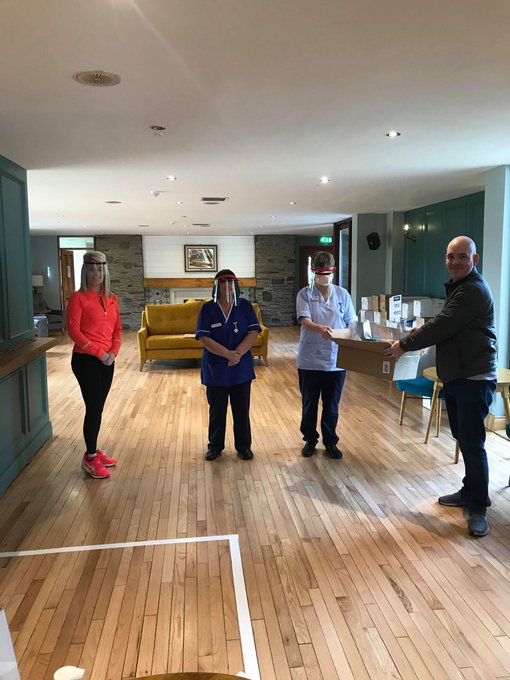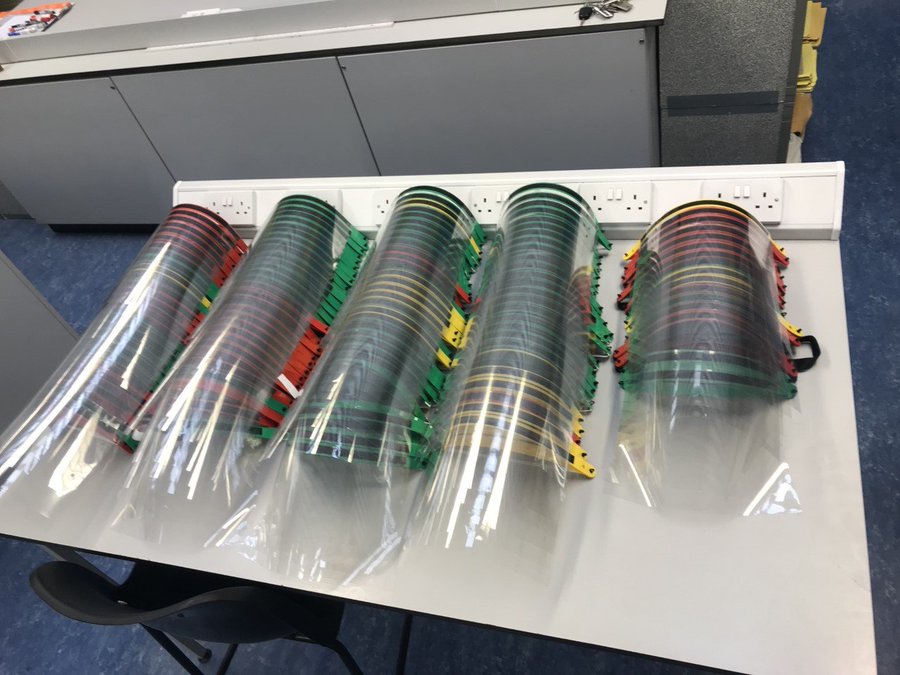NWRC delivering industry support for PPE crisis
North West Regional College (NWRC) has encouraged anyone with 3D printers, laser cutters and rapid prototyping machinery to consider if they can make Personal Protective Equipment (PPE) to meet the safety needs of medical and care staff during the current Covid-19 Coronavirus pandemic.
The College, through its Business Support Centre (BSC) and Product Design Centre (PDC), based at its Greystone Campus in Limavady, has answered the call by producing over 150 face guards in just two days at its state-of-the-art facility. Production will continue in the coming days.
They have appealed to anyone who has access to laser cutting or 3D printing facilities, be it in a University, College, school or a private business, to use this equipment to assist with the supply of PPE to local hospitals, care facilities and front line workers.
Patrick McKeown, Director of Finance and Economic Engagement at the NWRC explained that the College was doing whatever it could in an effort to meet the pressing need.
He said: “We put out a call to colleagues to collect all the PPE that we have across the various areas of the college, from Hairdressing and Beauty, to Science and Technology, and Health and Social Care, and we have passed these on to those in need.
“At the beginning of last week our PDC Manager, Philip Devlin, outlined that his team would like to utilise the 3D printing facilities to develop a prototype solution for a face guard. We were fully supportive and gave our full backing to the team – the progress in a few short days has been significant. “
PDC Manager Philip Devlin revealed that an innovative approach has seen the number of face guards being able to be produced per day increase from under 10 on Monday to over 100 on Friday, by switching from 3D printing technology to laser cutting, optimising the speed at which the guards can be manufactured and assembled.
He said: “On Monday we were looking at open source platforms which had designs from engineers throughout the world and these were utilising 3D printers to make plastic frames to which a clear plastic guard could be attached. We produced some of these prototypes and provided them to local Health Trusts to get feedback from their clinicians. There was no point in us making these guards if they were not going to meet the health care needs from a protective perspective and we were delighted when we received positive feedback.”
This encouragement inspired Philip and the team to try and speed up the process.
He continued: “We are fortunate to have staff that are willing to be innovative and we came up with a modified Computer Aided Design (CAD) to utilise a laser cutter to rapidly speed up the process that has seen us increase the speed tenfold. We were delighted to deliver 50 units to the Foyle Hospice on Friday and to see the relief on their faces when they received the delivery was worth the hard work and effort that has gone into it to this point and inspired us to try and support more front-line workers.
“Since we began looking at the needs of the health and care sectors we have seen the front-line workers crying out for face guards and we are acutely aware that given our facilities there are still only so many guards that we can manufacture per day. This is why we are encouraging those with the resources to produce, to do so.
“It might only be ten face guards that you can produce but if that prevents ten people from getting this deadly virus it will have been worthwhile.”


